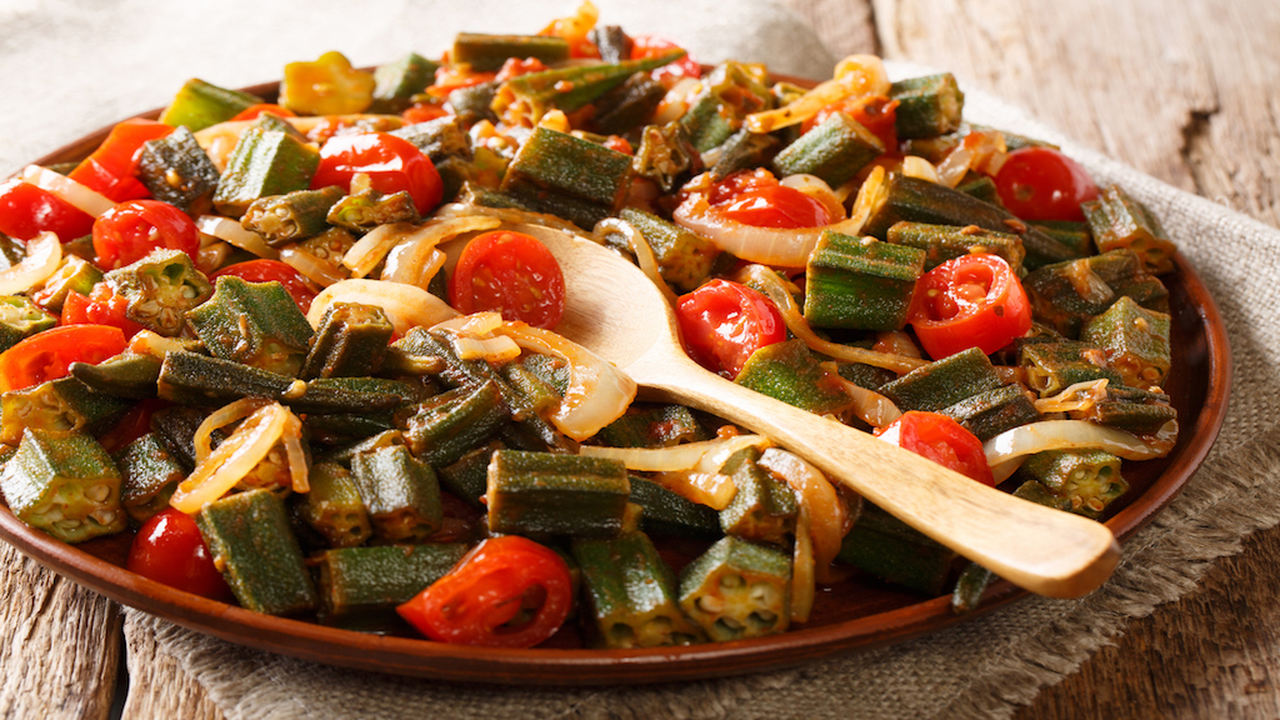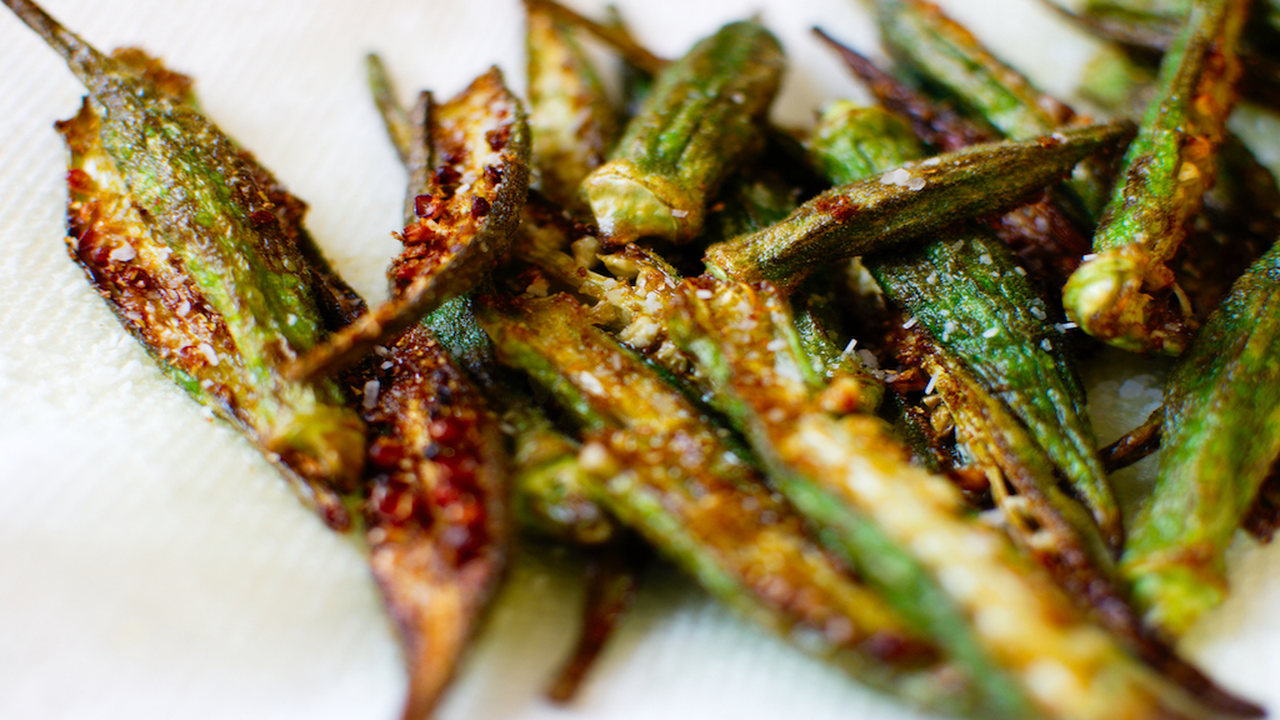Botanical Roots: Why you should eat okra - Loop News Jamaica
Eating healthy is the way to a longer life but it can be costly. Loop News will provide our readers with a weekly series, Botanical Roots, looking into the benefits of eating whole foods and their health advantages and, if any, disadvantages.
OKRA
Okra is a warm-season vegetable which provides a good source of minerals, vitamins, and fibre. It contains a characteristic viscous juice that can be used to thicken sauces.
Also known as Gumbo or ‘ladies fingers’, okra is popular in the Caribbean, the southern United States, Africa, the Middle East, and South America.
It is considered an important crop in many countries, because of its nutritional value, and because many parts of the plant can be used, including the fresh leaves, buds, flowers, pods, stems, and seeds.

The taste is mild, but it has a unique texture with peach-like fuzz on the outside and small, edible seeds on the inside of the pod.
It offers a wide range of health benefits.
Okra provides fibre, folate and vitamin K, all of which promotes a healthy heart, strong bones and protects the body against the dreaded disease cancer.
According to the US Department of Agriculture (USDA) National Nutrient Database, one cup of raw okra, weighing around 100 grams (g) contains: 33 calories, 1.93 g of protein, 0.19 g of fat, 7.45 g of carbohydrates, 3.2 g of fiber 1.48 g of sugar, 31.3 milligrams (mg) of vitamin K, 299 mg of potassium, 7 mg of sodium, 23 mg of vitamin C, 0.2 mg of thiamin, 57 mg of magnesium, 82 mg of calcium, 0.215 mg of vitamin B6, 60 micrograms (mcg) of folate and 36 mcg of vitamin A
Okra is also a source of antioxidants. Okra seeds also contain compounds which have been linked to a lower risk of cancer. Okra also provides some iron, niacin, phosphorus, and copper.
The nutrients in okra may make it useful for preventing a number of health problems. Check out the benefits below:
Cancer
Lectin is a type of protein found in okra, beans, peanuts, and grains. Lectin from okra was used in a study to treat human breast cancer cells.
The treatment reduced cancer cell growth by 63 per cent and killed 72 per cent of the human cancer cells. More studies need to be done to see if okra has an effect on cancer in humans.
People who do not eat enough folate appear to have a higher risk for breast, cervical, pancreatic, lung, and other cancers. Therefore, getting adequate folate from food like okra is important.

Pregnancy and breastfeeding
Folate is important for preventing fetal problems during a pregnancy. Low folate levels can lead to a loss of pregnancy or problems for the child in later life. Low folate levels have been linked to conditions such as spina bifida.
Getting enough folate is especially important for women before and during pregnancy, and while breastfeeding.
One 100-gram cup of okra contains 60 mcg of folate. For most people, the recommended daily allowance of folate is 400 mcg.
Diabetes
In 2011, researchers made a powder from the peel and seeds of okra to treat rats with diabetes.
The rats that were treated with the powder had lower blood sugar and fat levels than rats that did not receive the powder.
If this affects humans in the same way, it could lead to new therapies.
Heart health
According to the American Heart Association (AHA), eating foods that are high in fibre can reduce harmful cholesterol levels in the blood.
High-fibre foods lower the risk of heart disease, stroke, obesity, and diabetes. Fibre can also slow heart disease in people who already have it.
Women aged 19 to 30 years should aim to consume at least 28 grams of fibre each day in vegetables, fruits, legumes, and whole grains, while men need 33.6 grams a day. Okra has 3.2 g of fibre per cup.
Osteoporosis
Foods that are high in vitamin K, such as okra, are good for the bones. Vitamin K helps the bones absorb calcium. In theory, people who eat enough vitamin K are more likely to have strong bones and fewer fractures.
Okra and leafy greens such as Swiss chard, arugula, and spinach add vitamin K and calcium to a diet.

Gastrointestinal health
Dietary fibre helps prevent constipation and maintain a healthy digestive system.
Research suggests that the more fibre a person eats, the less chance they have of developing colorectal cancer.
Fibre in the diet also helps to reduce appetite, and it may contribute to weight loss.
In Asian medicine, okra extract is added to foods to protect against irritation and inflammatory gastric diseases. The anti-inflammatory and antimicrobial action may help protect against gastrointestinal problems.
Other health-related uses
Okra seeds can also provide oil and protein, and they have been used as a source of oil in small-scale production.
In poor regions of the world, the seeds can offer a source of high-quality protein.
The viscous extract of okra also has potential for use in medicine, for example, as a tablet binder and a suspending agent in medicines.
Another possible medical application of this ingredient is as a serum albumin extender.
Research has also suggested that it could be used as a plasma replacement or blood volume expander.
Buy okra when it is firm and keep it dry. Store for no more than 3 to 4 days in paper or plastic in a crisper drawer. Cooking it whole makes it the mucilaginous juice, unpopular with some people, but good for the health.
People who use blood thinners should not eat too much okra, as the vitamin K levels can interact with the drug.
Choose okra that is taut and firm to the touch and avoid pods that are shriveled or soft. Once the pods start to turn dark on the ends, they will go bad if they are not used soon.
Okra makes a tasty accompaniment to chicken and other roast dishes.
Keep okra dry, and do not wash it until you are ready to use it. Storing it in the crisper drawer in a paper or plastic bag can stop it becoming slimy or moldy. Fresh okra does not last for more than three to four days.
It can be used in salads, soups, and stews, fresh or dried, fried, sautéed, roasted, or boiled.
Cutting okra and cooking it in moisture releases a mucilaginous, or slimy, juice that increases the thickness of soups and stews. Dried okra can also be used to make or thicken a sauce, or as an egg white substitute.
Okra seeds can also be roasted and ground to make a non-caffeinated coffee
Some people do not enjoy the gummy texture of okra. Cooking the whole pods quickly can avoid this.
These healthy and delicious okra recipes have been developed by registered dietitians:

Risks and precautions
Eating too much okra can have an adverse effect on some people.
Fructans and gastrointestinal problems: Okra is rich in fructans, a type of carbohydrate that can cause diarrhea, gas, cramping, and bloating in people with bowel problems. People with irritable bowel syndrome (IBS) and other gut conditions are more likely to be sensitive to foods high in fructans.
Oxalates and kidney stones: Okra is also high in oxalates. The most common type of kidney stone is made of calcium oxalate.
According to the National Institute of Diabetes and Digestive and Kidney Diseases (NDDKD), high-oxalate foods can increase the risk of these stones in people who have had them previously. Other high oxalate foods include spinach, rhubarb, and Swiss chard.
Solanine and inflammation: Okra contains a compound called solanine. Solanine is a toxic chemical that has been linked to joint pain, arthritis, and long-lasting inflammation for a small percentage of people who may be sensitive to it. It is found in many fruits and vegetables, including potatoes, tomatoes, eggplant, blueberries, and artichokes.
No studies have suggested reducing solanine intake for the general population. In general, vegetables and fruits help reduce inflammation.
Vitamin K and blood clotting: Okra, and other foods that are high in vitamin K, can affect those who use blood-thinning drugs like warfarin, or Coumadin. Blood thinners are used to prevent harmful blood clots that can block blood from getting to the brain or heart.
Vitamin K helps the blood to clot. People who are at risk of blood clots should not suddenly change the amount of vitamin K they eat but keep their intake of vitamin-K-rich foods steady from day to day.
For most people, okra, like other vegetables, is a healthful addition to the diet. As with any food or nutrient, it is best to eat it in moderation and as part of a varied, balanced diet.
Some of the information used in this article was taken from www.medicalnewstoday.com
http://bit.ly/2MDo9KE
Comments
Post a Comment